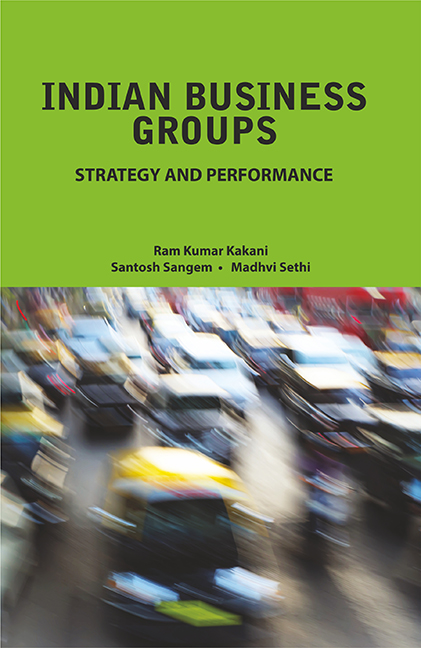Book contents
- Frontmatter
- Contents
- List of Tables and Figures
- Preface
- Acknowledgements
- 1 Introduction to Business Groups and their Strategies
- 2 Business Groups across the Globe
- 3 Product Diversification and Performance: Measurement and Historical Relationship
- 4 Conceptual Framework and Research Methodology
- 5 Empirical Results and Managerial Implications
- 6 Case Analyses of Business Groups' Strategies
- 7 Summary of the Work
- References
- Index
- About the Authors
6 - Case Analyses of Business Groups' Strategies
Published online by Cambridge University Press: 13 July 2022
- Frontmatter
- Contents
- List of Tables and Figures
- Preface
- Acknowledgements
- 1 Introduction to Business Groups and their Strategies
- 2 Business Groups across the Globe
- 3 Product Diversification and Performance: Measurement and Historical Relationship
- 4 Conceptual Framework and Research Methodology
- 5 Empirical Results and Managerial Implications
- 6 Case Analyses of Business Groups' Strategies
- 7 Summary of the Work
- References
- Index
- About the Authors
Summary
In our empirical research (Chapter 5), we evaluated the performance of Indian business groups using their aggregated financial statement and capital market figures over a time period spanning more than a decade (1987−99). A prime objective of this chapter is to probe into the possible rationales behind our empirical results, i.e., of higher diversification of Indian groups not generating enough value and profitability in comparison to their focused counterparts. We extend the same by doing the case analysis of a few business groups. Our purpose is to gauge the strength of business groups and trail the effectiveness of their corporate diversification strategies adopted during the study period and how these impacted the group's overall performance over a period of 26 years (1987−2013). In doing so, we are also in a position to review the strategic drivers and performance during the high-growth phase in the Indian economy.
In our discussion below, we term the Indian economic conditions during 2000−13 as a period of rapid liberalization. This period witnessed numerous measures such as greater easing of FDI norms, replacement of the MRTP Act with the Competition Act of 2002, privatization of a number of state-owned firms, and complete abolition of quantitative restrictions on imports. Following the relaxations on current account convertibility, the erstwhile Foreign Exchange Regulation Act (FERA) was replaced by the more liberal Foreign Exchange Management Act. In addition, the relaxations on capital account convertibility allowed domestic firms to both raise and invest money in foreign countries.
The rapid growth of mutual funds, insurance companies, non-bank financial institutions, and the greater participation of FIIs in the Indian financial markets has played a suggestive role in driving changes in the structure of industrial activity during this period. The greater participation by these institutional investors has been both a driver and an outcome of improved corporate governance codes and practices, minority investor protection, accounting norms, bankruptcy laws and procedures, and regulations such as the takeover code that were implemented to bridge the gap with globally accepted practices. This was also a period that witnessed the global financial crisis with its relatively delayed impact on the Indian economy that had achieved very high growth rates during the 2000s that slowed down during 2008−13.
- Type
- Chapter
- Information
- Indian Business Groups: Strategy and Performance , pp. 169 - 216Publisher: Foundation BooksPrint publication year: 2015



